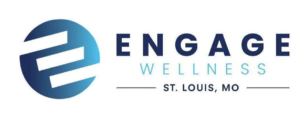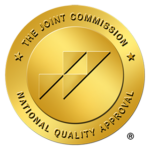ADHD Dual Diagnosis in St. Louis at Engage Wellness
Attention deficit hyperactivity disorder (ADHD) is a neurological disorder that is often diagnosed in childhood and may last into adulthood. It’s characterized by symptoms like inattentiveness, inability to stay still, and impulsivity.
What Is ADHD?
ADHD is a neurological disorder characterized by symptoms of inattention, hyperactivity, and impulsivity. It affects both children and adults and can present in a few different ways:[1]
In adults, the symptoms of ADHD may include:[2]
While ADHD can be managed through medication, therapy, and lifestyle adjustments, many people remain undiagnosed and untreated into adulthood. When ADHD is untreated, daily tasks like organizing, prioritizing, and maintaining focus can be extremely difficult. These challenges can affect daily life and interpersonal relationships, and substances may be used as a form of self-medication.
Drug Addiction and Interaction with ADHD
ADHD can have a negative impact on academic or work performance and may impact social development. People who live with ADHD – especially without treatment – may rely on substance use to combat the symptoms. Drug or alcohol use may make up for the lack of dopamine in the brain, which tends to be lower in people who have ADHD.
Treatment of ADHD and substance abuse can be difficult because these two conditions influence each other, and some of the effective medications to treat ADHD can also be habit-forming. Stimulant medications like Adderall and Ritalin can help to manage symptoms, but they have a high potential for abuse. There are non-stimulant medication treatments, however.

Statistics for ADHD and Substance Use Disorder
Research has revealed that people with ADHD have an increased risk of substance use disorder (SUD) or another addiction comorbidity. In a long-term study, substance abuse was 6 times more likely in cases with ADHD than in the control group, and women with ADHD were at a higher risk than men with ADHD.[3]
The link is obvious from the opposite perspective. It’s estimated that up to 50% of adolescents and young adults with substance abuse disorders have a lifetime diagnosis of ADHD.[4] In addition, ADHD was much more prevalent among people with methamphetamine use disorder.[5] Research also suggests that dual diagnosis involving ADHD and substance use disorder has a more severe progression from use to abuse and a greater mental and social impairment.[6]
Causes of ADHD and Substance Use Disorder Dual Diagnosis
ADHD and addiction have overlapping risk factors, including genetics. Causes of ADHD can include:

ADHD and Addiction Treatment Centers in St. Louis
Our dual diagnosis treatment centers in St. Louis focus on the complex relationship between ADHD and addiction. Our programs are designed to treat the physical, psychological, emotional, social, and behavioral components of ADHD while also treating substance use disorders and their underlying causes.
Each treatment plan at Engage Wellness is personalized. We offer different levels of care to provide the optimal level of support and supervision, including intensive outpatient programs (IOP) for ADHD and addiction, and outpatient treatment. These settings rely on a range of therapies, including:
01
Cognitive behavioral therapy (CBT) for ADHD and addiction helps with identifying and challenging negative thought patterns that contribute to impulsivity and substance use. It’s particularly effective for ADHD.
02
Dialectical behavioral therapy (DBT) for ADHD and addiction helps with learning cognitive strategies to enhance emotional control and interpersonal effectiveness. This is important for ADHD, which often involves intense emotions and difficulty managing stress.
03
Group therapy for ADHD and addiction helps develop social skills, receive peer support, and learn from people going through similar struggles. For people with ADHD, group therapy provides structure, accountability, and a sense of belonging.
04
Family therapy for ADHD and addiction helps to address family dynamics that may affect or result from these disorders, including developing communication, support structures, and healthy boundaries for family members for long-term recovery.
05
Eye movement desensitization and reprocessing (EMDR) for ADHD and addiction to address traumatic memories that may exacerbate symptoms in a safe and structured way, and learn to cope with cravings and emotional reactivity.
06
Holistic treatment for ADHD and addiction, such as yoga, mindfulness, and nutritional counseling, complements traditional therapy and reduces stress, manages ADHD symptoms, and promotes well-being.
07
Veterans programs for ADHD and addiction can help with the unique challenges veterans face, including PTSD and stress from reintegration into civilian life.



